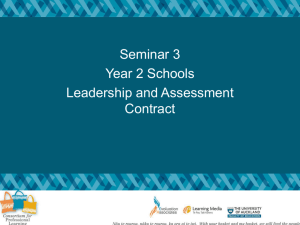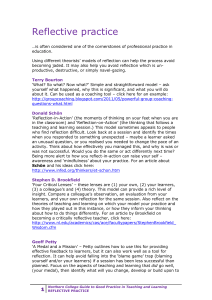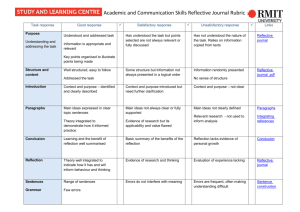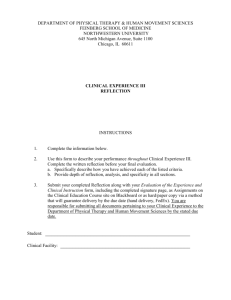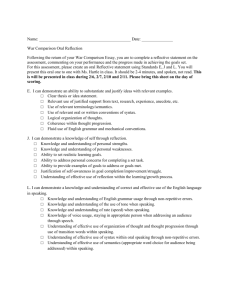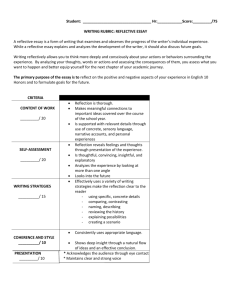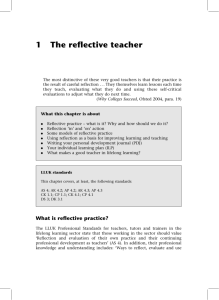- Itslife
advertisement
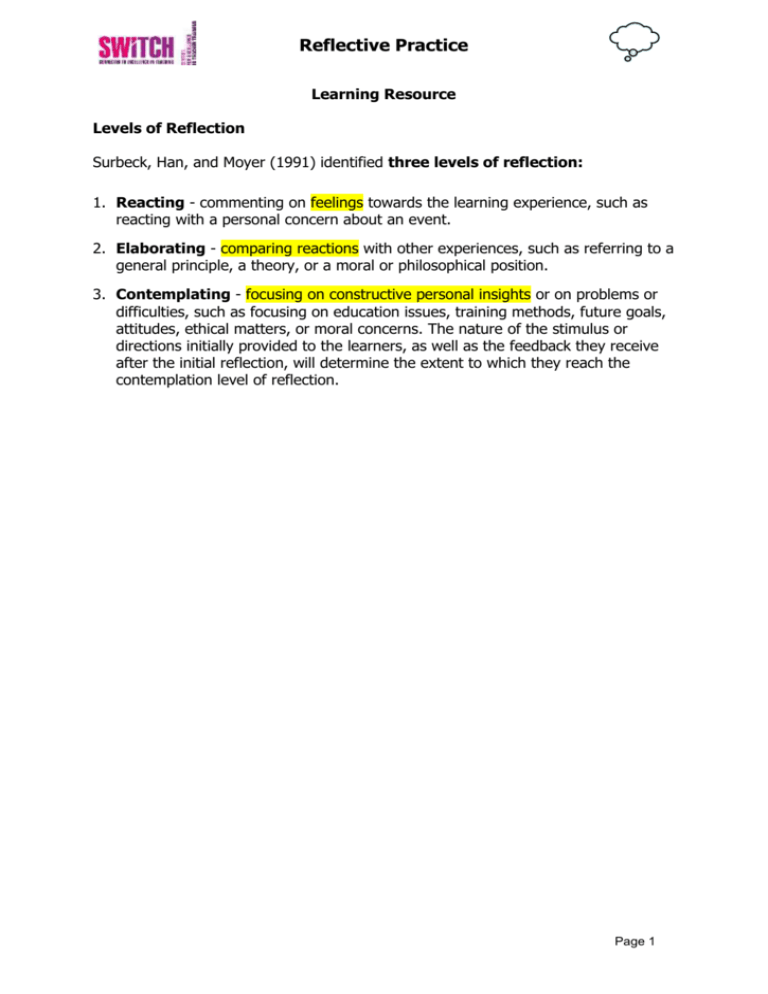
Reflective Practice Learning Resource Levels of Reflection Surbeck, Han, and Moyer (1991) identified three levels of reflection: 1. Reacting - commenting on feelings towards the learning experience, such as reacting with a personal concern about an event. 2. Elaborating - comparing reactions with other experiences, such as referring to a general principle, a theory, or a moral or philosophical position. 3. Contemplating - focusing on constructive personal insights or on problems or difficulties, such as focusing on education issues, training methods, future goals, attitudes, ethical matters, or moral concerns. The nature of the stimulus or directions initially provided to the learners, as well as the feedback they receive after the initial reflection, will determine the extent to which they reach the contemplation level of reflection. Page 1 Reflective Practice Levels of reflection in practice Event / Activity / Application (Please briefly describe) Levels Comments Reacting - commenting on feelings towards the learning experience, such as reacting with a personal concern about an event. Elaborating - comparing reactions with other experiences, such as referring to a general principle, a theory, or a moral or philosophical position. Contemplating - focusing on constructive personal insights or on problems or difficulties, such as focusing on education issues, training methods, future goals, attitudes, ethical matters, or moral concerns. The nature of the stimulus or directions initially provided to the learners, as well as the feedback they receive after the initial reflection, will determine the extent to which they reach the contemplation level of reflection. Page 2 Reflective Practice Generic Questions for Reflective Practice What happened? What What What What What took place? do your colleagues think took place? do your students think took place? area of practice needed improvement or change? worked really well? Why did it happen? What were the factors contributing to the problem / success? What assumptions and underlying beliefs and motives were involved from you, your learners and your colleagues? Can you recognise any theory in what took place? What external factors had any effect? What can be done? What are the possible ways to improve? How could you use some of the success factors in your teaching? How do your colleagues think you could use some of the success factors in your teaching? How do your students think you could use some of the success factors in your teaching? What ways forward are there? Which parts of the changes are the most straightforward / least straightforward? How will this affect your professional situation? What will be done? What action will you take? What impact do you believe it will have on you, your learners and your colleagues? When will you take action? Page 3
